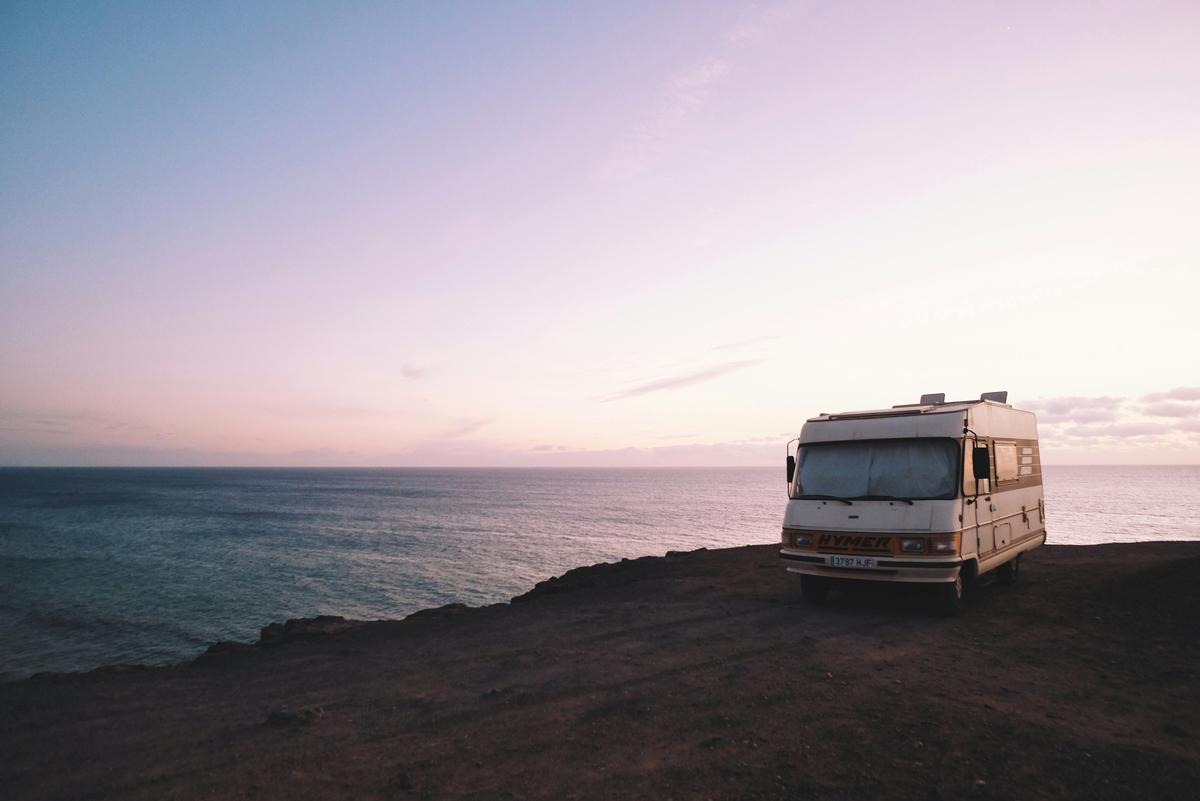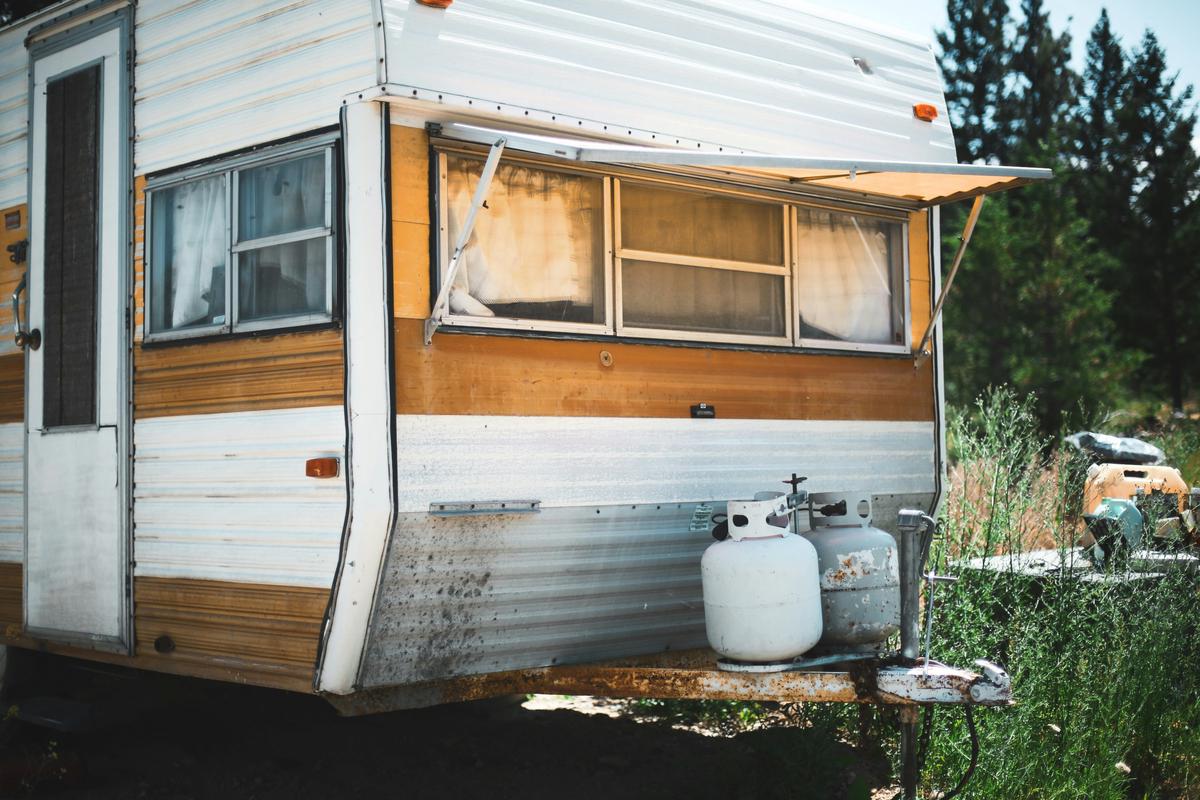RV Purchase & Maintenance
Buying an RV is a lot like home shopping – the price tag varies depending on whether you're looking at a small pop-up camper or a large motorhome. You could spend anywhere from a few thousand dollars for a used RV up to hundreds of thousands for a brand-new motorhome1. Keep in mind that the initial cost is just the beginning. Owning an RV means you're also committing to ongoing maintenance and repair costs.
Maintenance costs can be unpredictable – you never know when they'll occur or how much they'll be. Routine upkeep like oil changes and brake checks are standard. But then you have the unexpected issues, like when your water heater stops working or your roof develops a leak. An RV requires regular maintenance and repairs, which can add up over time.
The type of RV you own affects everything. Larger Class A motorhomes typically have higher maintenance costs. While a smaller Class B or C might not require as much, all RVs have potential repair needs. Even towable RVs have maintenance considerations.
To avoid unexpected repair bills draining your travel budget, proactive owners get to know their vehicles well. Expensive surprises happen less often to people who can identify potential issues early on. Time spent learning about your RV can potentially save you money on future repairs that you either prevent or handle more cost-effectively.
Paying for professional maintenance can add up quickly. However, consulting your owner's manual and attempting some DIY repairs not only saves money but also helps you understand your RV better. Plus, there's a sense of satisfaction in being able to say, "I fixed that myself!"
RV ownership comes with both adventures and responsibilities. Knowing your RV well can help manage the impact of maintenance costs on your budget. Embracing the upkeep along with the travel experiences makes the journey more fulfilling and financially manageable.

Photo by stijntestrake on Unsplash
Campground Fees
Just as real estate emphasizes "location, location, location," choosing your nightly RV parking spot highlights "variation, variation, variation." Campground fees vary widely across the country. Whether you're budget-conscious or willing to spend more for extra amenities, there's an RV park that will fit your needs and preferences.
Boondocking, popular among budget-minded travelers seeking more freedom, represents a minimalist approach: free camping. Public lands across the country offer these spots on a first-come, first-served basis. The tradeoff is that you'll be camping without hookups or amenities, so while it's easy on your wallet, you'll need to be more self-sufficient.
Budget campgrounds are the backbone of RV living. These spots average around $25-$45 per night and provide the basics: a place to park, some hookups, and usually proximity to points of interest. Having "full hook-ups" – water, electricity, and sewer – is worth the cost, especially if you've been boondocking and are ready for the comforts of hookups again.
For those who prefer more upscale accommodations, luxury RV parks offer a premium experience. With nightly fees often over $75, you're not just paying for a parking spot; you're accessing a range of amenities2. This may include pools, hot tubs, golf courses, and reliable Wi-Fi. The location, such as beachfront or scenic mountain settings, also influences the higher prices.
Experienced RVers learn to strike a balance. Strategically mixing boondocking with occasional splurges at nicer RV parks allows you to enjoy a range of camping experiences without overspending. RV park memberships and discount clubs like Good Sam can also provide reduced rates.
The length of your stay also impacts the cost. Campgrounds often offer discounted rates for extended stays, making a luxury RV park more budget-friendly if you're settling in for a while.
Campground fees are highly variable, ranging from free boondocking to high-end RV resorts. With knowledge, flexibility, and some strategic decision-making, RVers can navigate the spectrum of campground costs effectively. Whether you prefer rustic camping or more luxurious accommodations, thoughtfully managing your campground expenses is part of the RV lifestyle.

Fuel & Propane Expenses
Fuel and propane expenses are a significant part of the cost of RV living. Driving a large vehicle across the country isn't easy on the budget, and that's before considering the cost of keeping your RV comfortable and running your appliances. Let's explore the financial realities of RV fuel and propane costs.
Gasoline or diesel costs fluctuate frequently, making it challenging to predict your fuel expenses. You'll need to plan your fuel stops strategically to minimize costs. Rule number one: Stay informed about gas prices, which can vary significantly from one area to another.
RV size is a major factor in fuel costs. Are you driving a smaller Class B or a large Class A motorhome? Larger RVs typically have lower fuel efficiency, consuming more gas and impacting your budget more heavily. Your travel frequency also matters; the more often you move locations, the more you'll spend on fuel.
Propane expenses add another layer to the cost of RV living. Propane powers many RV appliances, from your stove and refrigerator to your furnace. Propane usage increases when you cook more or need to heat your RV in colder weather, making it an expense to budget for carefully.
How can you manage fuel and propane expenses effectively? Here are a few strategies:
- Improve Fuel Efficiency: Keep your RV well-maintained and pack efficiently to optimize your fuel economy. A streamlined vehicle without unnecessary weight will consume less fuel.
- Budget Carefully: Set aside a dedicated portion of your budget for fuel, adjusting it based on your travel plans and current gas prices. Careful planning and using apps to find the best gas prices can help you control costs.
- Use Propane Wisely: Be mindful of your propane consumption. Insulating your RV well and using propane appliances efficiently can help you conserve propane and save money.
- Consider Memberships: Some membership clubs offer gas discounts that can add up to significant savings over time3.
Managing fuel and propane costs is an important part of RV living. With some planning, efficiency measures, and smart decision-making, you can keep your RV lifestyle affordable. Every journey begins with a single step—and a well-planned budget.

Photo by ballistic on Unsplash
Internet & Entertainment
In the journey of full-time RV living, where one finds comfort in the sounds of nature and the freedom of the road, there is a modern challenge—how to stay digitally connected while being mobile. Reliable internet is essential for RV life. But the challenge is balancing cost with the quality of service.
The Hunt for Megabytes: Internet Solutions for RV Adventurers
- Mobile Hotspots and Data Plans: Mobile hotspots use cellular networks to provide internet to your devices. However, unlimited data plans from carriers often come with high prices, ranging from $50 to $150 per month, depending on your internet needs.
- Satellite Internet: Satellite internet allows you to access the web from remote locations. However, the equipment can be costly, and subscriptions can range from $100 to much more per month.
- RV Park Wi-Fi: RV park Wi-Fi is often included in your camp fees but can be unreliable and slow due to shared bandwidth.1
The Advent of Amusement: Entertainment for the Wandering Souls
- Streaming Services: Platforms like Netflix, Hulu, and others offer a wealth of content for a monthly fee ranging from $10 to $15. These services are a cost-effective choice for evenings under the stars.
- Digital Libraries: E-books and audiobook services provide access to a vast array of reading material. Public library apps offer free access to digital books, making them an excellent resource for budget-conscious RVers.2
- Outdoor Enthusiasms: Simple joys like hiking, biking, or playing cards can provide endless entertainment without the need for a digital connection.
Whether navigating internet options or finding entertainment, the essence of RV life lies in balancing modern demands with the desire for adventure.

Insurance & Hidden Costs
Forging the Insurance Shields: A Triumvirate of Protection
- Vehicle Insurance: Your Steed's Guardian – Comprehensive vehicle insurance covers collisions and other misfortunes on the open road. Premiums vary based on your RV's make and model, storage location, and the level of protection desired.
- Personal Property Insurance: Safeguarding Your Treasures – Personal property insurance protects your belongings from theft, fire, and other calamities. Choose a policy that complements your assets without straining your budget.
- Health Insurance: The Healer's Pledge – Health insurance ensures that medical care doesn't deplete your savings. A versatile policy that provides coverage across states is essential for the nomadic lifestyle.3
Battling the Goblins of Unforeseen Expenses
- Emergency Repairs: The Siege on Your Wallet – Sudden repairs can be costly. Setting aside an emergency fund helps counteract these unwelcome surprises without derailing your journey.
- Tolls and Taxes: The King's Levy – Tolls and taxes can accumulate over time. Plan your journey with these costs in mind and consider using a toll pass to minimize expenses.
- Laundry: The Non-glamorous Scroll of Reality – Laundry demands both money and time at laundromats. Budget for these costs to avoid being caught off guard by an overflowing hamper.
In planning your full-time RV living journey, let insurance be your protection and foresight your guide. Prepare for both significant challenges and small expenses. With proper planning and a secure emergency fund, you'll find yourself thriving as you create your own story on the open road.

Photo by limorganon on Unsplash
Leave a Reply